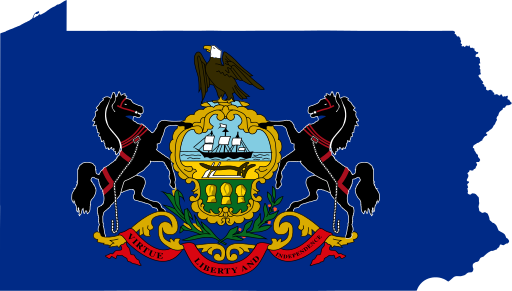Carolyn Carluccio (R) and Daniel McCaffery (D) are running in the partisan election for one seat on the Pennsylvania Supreme Court on Nov. 7, 2023. The primary was May 16, 2023.
The winner of the general election will succeed Justice Max Baer (D), who died on September 30, 2022. As a result of Baer’s death, the court went from a 5-2 Democratic majority to a 4-2 Democratic one.
Carluccio has been a judge on the Montgomery County Court of Common Pleas since 2010. Before that, she was an assistant U.S. Attorney and Montgomery County’s Chief Public Defender. In her responses to Ballotpedia’s Candidate Connection survey, Carluccio said, “As Judge, I am impartial and apply the law as it is written. I will not legislate from the bench.”
McCaffery was elected to the Pennsylvania Superior Court in 2019. An Army veteran, he worked as an attorney and assistant district attorney in Philadelphia. McCaffery said: “The law is the vehicle that drives society toward a more level playing field. I have always worked to make our society more fair, inclusive, and accepting. Pennsylvanians deserve a justice who will always protect, obey, and defend the constitution. I believe I am that person.”
Partisan control of the court cannot change as a result of the 2023 election. If Carluccio wins the general election, the balance of the court will change from a 4-2 Democratic majority to a 4-3 Democratic one. If McCaffery wins, the court’s balance will change from a 4-2 Democratic majority to a 5-2 Democratic one.
The next scheduled state supreme court elections in Pennsylvania will take place in 2025 when three Democratic justices first elected in 2015—Kevin M. Dougherty (D), David Wecht (D) and Christine Donohue (D)—will be up for retention. If any of the three justices are not retained, the governor will appoint an interim successor who must be approved by a two-thirds vote of the Pennsylvania Senate. The interim justice will serve until a special election to fill the seat takes place concurrently with the next general election occurring more than 10 months after the vacancy occurred.
Control of the court last changed following the 2015 elections, when it went from a 4-3 Republican majority to a 5-2 Democratic majority.
The Pennsylvania Supreme Court is the state’s court of last resort. It can hear appeals from statewide and local courts and assume jurisdiction over any case in the Pennsylvania court system. Spotlight PA’s Kate Huangpu and Stephen Caruso wrote, “The state Supreme Court takes on relatively few cases, but its rulings can have a major impact on politics and policy in Pennsylvania. In recent years, the court has decided cases on reproductive rights, mask mandates, and election disputes.”
Justices run in partisan elections for 10-year terms. Judges seeking additional terms must run in retention elections.
Pennsylvania’s most recent state supreme court election was in 2021, when Kevin Brobson (R) defeated Maria McLaughlin (D) in the general election, 52% to 48%. Brobson’s election did not change the partisan composition of the court since he succeeded Justice Thomas Saylor (R), who did not run for another term because he turned 75 in 2021.


